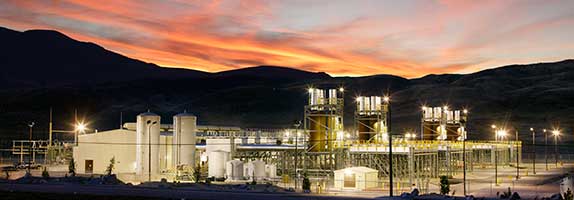

About Marine
Even though great strides have been taken in detecting, containing and extinguishing fires, the best time to fight a fire is before it starts. The desire to work towards a zero-fire engine room led cruise operator RCL, technology group Wärtsilä, and classification society DNV GL to initiate a joint industry project to improve engine room fire prevention.
Since 2016, these project partners have worked with stakeholders across the whole industry to collect data, analyse the key risks, and develop safety barriers to manage the most significant risk factors. As a result, RCL launched a programme to enhance engine room fire prevention across its entire fleet, and Wärtsilä offered technical solutions and procedures for the maintenance of their engines to lower fire risk. DNV GL has introduced a new class notation F(M-P), which focuses not only on the systems, but also the processes and people, to enhance the main safety barriers in order to prevent fires in machinery spaces.
“Our target is zero engine room fires and with these enhanced standards, we believe this goal is within reach”, said Anders Aasen, VP of Global Technical Solutions at RCL. “Any fire, even one that is detected and extinguished immediately, can impact not only the ship, but the operator and the whole industry. This is why we are so pleased that the cruise ship safety forum, alongside many other stakeholders, could come together around a set of best practices, which were published in January this year, that strengthen safety barriers. For RCL, this project has had the added benefit that we have enhanced our data analytics capabilities, which gives us an ongoing scope for further improvement.”
“This particular case has proven the power of cooperation between the customer and the supplier in order to take the next steps in safety”, says Jyrki Salo, Senior Product Manager (SOLAS) at Wärtsilä. “The creation of the 150°C design has its roots in the safety charrette held three years ago, where we worked on ideas for increasing safety in the cruise industry. Developing a successful SOLAS compliant product is a result of numerous design improvements. Wärtsilä’s long history of retrofit SOLAS compliant designs has resulted in a solution which allows going below 150°C. We have also used the lessons we have learned from earlier designs and adapted the new designs accordingly.”
The new DNV GL class notation (F (M-P), which will be implemented in RCL’s new cruise vessel Navigator of the Seas, identifies key areas for preventing fires in engine rooms based on incident analysis, feedback from surveyors, and best practices from the industry. It sets in place standards and processes focussing on the prevention of oil leakage, detection of oil leakage and the shutdown system, containment of oil leakage and prevention of ignition.
“The new notation brings together many aspects of barrier management to improve safety”, says Knut Ørbeck-Nilssen, CEO of DNV GL – Maritime. “It covers not just the technical systems, but the processes used and the people involved, utilising best practices to provide a holistic approach to preventing these incidents. This notation shows the importance of learning from casualty data, and how by combining this with the insights from class and the industry, we can work together to move safety forward.”
As casualty statistics indicate that many engine room fires occur when flammable liquid reaches a hot surface, the notation introduces process checks and technical measures to prevent this from occurring. There is overarching emphasis on both internal and external processes and procedures, with auditing of procedures to enable more efficient oversight. Likely areas for leakage are identified, and containment strategies for such areas offered. Control and monitoring of vibration in essential systems is an added requirement, with ongoing data collection included to show trends over time. Insulation of potentially hot surfaces is also a key issue to prevent ignition, so maintenance activities in this area is emphasised. In addition, the requirement for continuous improvement through data analytics means that owners and operators can gain ongoing benefits from the processes and systems they put in place to prevent fires.
The new notation can be found here
Image caption: The new DNV GL class notation will be implemented in RCL’s new cruise vessel Navigator of the Seas. (Image care of Royal Caribbean International)
Media contacts:
Mr Jyrki Salo
Senior Product Manager
Wärtsilä Finland
Tel. +358 10 7093226
Jyrki.salo@wartsila.com
Ms Marit Holmlund-Sund
General Manager, Positioning, Marine Business Marketing
Wärtsilä Corporation
Tel: +358 10 709 1439
marit.holmlund-sund@wartsila.com
Wärtsilä in brief
Wärtsilä is a global leader in smart technologies and complete lifecycle solutions for the marine and energy markets. By emphasising sustainable innovation, total efficiency and data analytics, Wärtsilä maximises the environmental and economic performance of the vessels and power plants of its customers. In 2018, Wärtsilä's net sales totalled EUR 5.2 billion with approximately 19,000 employees. The company has operations in over 200 locations in more than 80 countries around the world. Wärtsilä is listed on Nasdaq Helsinki.
www.wartsila.com
About DNV GL
Driven by our purpose of safeguarding life, property and the environment, DNV GL enables organizations to advance the safety and sustainability of their business. We provide classification, technical assurance, software and independent expert advisory services to the maritime, oil & gas and energy industries. We also provide certification services to customers across a wide range of industries. Operating in more than 100 countries, our professionals are dedicated to helping our customers make the world safer, smarter and greener.
About DNV GL – Maritime
DNV GL is the world’s leading classification society and a recognized advisor for the maritime industry. We enhance safety, quality, energy efficiency and environmental performance of the global shipping industry – across all vessel types and offshore structures. We invest heavily in research and development to find solutions, together with the industry, that address strategic, operational or regulatory challenges. For more information visit www.dnvgl.com/maritime